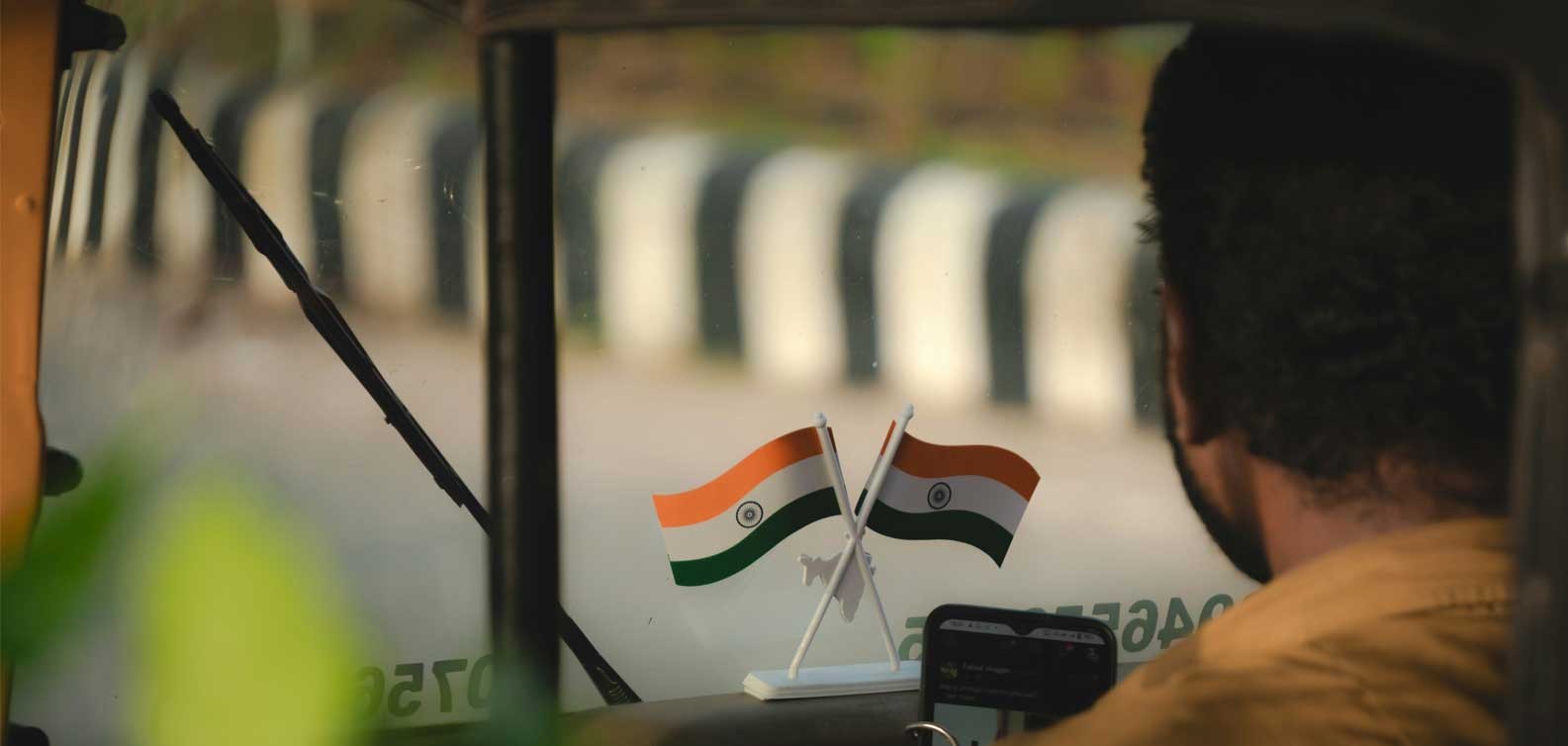How to Renew RC Online After 15 & 20 Years: Vehicle Registration Guide
Share

You may have the best vehicle in town (or at least the one you think is the best), but it isn’t rocket science to logically ask: Have you gotten it registered?
That’s right. In India, you need to get a Registration Certificate (RC) as legal proof that your vehicle is registered with the Regional Transport Office (RTO). In India, every vehicle’s RC is valid for 15 years from the date of registration for private vehicles.
After which, your vehicle registration needs to be renewed periodically to remain road-legal.
This process involves fitness checks, documentation, and fee payment—handled either online or at your local RTO.
Whichever vehicle you are driving, and the city you live in, you should be aware of the ins and outs.
When is RC Renewal Required?¶
If your vehicle:
- Is about to complete 15 years from the date of original registration, or
- Already has an expired RC,
…then you need to initiate the RC renewal process at least 60 days before the expiry date.
This is not just a best practice—it’s necessary to avoid delays, late fees, or legal trouble. After 15 years, private vehicles are required to undergo a fitness test to ensure they meet emission and safety norms. This step is mandatory before the RC renewal is approved.
What Happens After 20 Years?
While the Motor Vehicles Act prescribes 15 years as the default RC validity for private vehicles, some state-specific rules require stricter inspections after 20 years. These may include structural integrity tests, pollution checks, and roadworthiness assessments at an automated or authorized fitness center.
Documents Required for RC Renewal¶
Before you begin the online or offline renewal process, make sure you have these documents handy:
- Form 25 – Application for RC renewal
- Original RC Book/Card
- Valid Insurance Certificate
- Pollution Under Control (PUC) Certificate
- Road Tax Payment Proof (updated)
- Chassis & Engine Number Impressions (pencil print)
- Owner’s Identity Proof – Aadhaar, Passport, PAN, Voter ID, etc.
These documents are mandatory across most states. Always double-check specific requirements from your state RTO website.
Additional Requirements for Vehicles Over 15 Years:
- Fitness Certificate – Issued by an authorized vehicle fitness test center
- Emission Test Report – From a certified PUC testing center
- Brake & Headlight Testing – Sometimes required during automated inspection
Vehicles older than 15 years will not be considered roadworthy without this certification, regardless of how well they’ve been maintained.
RC Renewal Fees & Penalties¶
RC renewal isn’t free, and costs may vary depending on the vehicle type and age.
Standard RC Renewal Fees
| Vehicle Type | Renewal Fee (₹) |
| Two-wheelers (private) | ₹300 |
| Two-wheelers (commercial) | ₹600 |
| LMV (cars, jeeps) | ₹600–₹1,000 |
| Medium/Heavy Transport | ₹1,000–₹1,500 |
| Imported Vehicles | ₹2,500–₹5,000 |
Additional Charges (Post 15/20 Years)
- Fitness Test Fee – ₹200 (average)
- Inspection Fee – ₹100 to ₹300 depending on state
- Late Penalty – Can range from ₹200 to ₹500 per month
Example:
In Karnataka, delayed RC renewal attracts a monthly penalty of ₹300, plus ₹50/month as road safety cess.
How to Renew RC Online (Parivahan Portal)¶
India’s Ministry of Road Transport & Highways provides a centralized online platform for vehicle-related services, including RC renewal.
Step-by-Step Process
- Visit Parivahan Sewa
- Go to “Online Services” > “Vehicle Related Services”
- Select your State and the corresponding RTO
- Choose “Apply for Renewal of Registration”
- Enter your Vehicle Registration Number
- Upload scanned copies of required documents:
- Insurance
- PUC
- Form 25
- ID Proof
- Pay the applicable fees via UPI, Net Banking, or Debit/Credit Card
- Submit the form and generate the Application Number for tracking
You’ll receive updates on the registered mobile number or email ID. Post-approval, your renewed RC may be sent via post or collected from the RTO.
State-Specific Portals You Can Use¶
While the Parivahan portal serves as the national platform, some states have dedicated portals:
- Karnataka – transport.karnataka.gov.in
- Maharashtra – MahaTranscom
- Delhi – Sarathi
It’s important to follow your state’s official channels, especially when booking fitness inspections or paying state-specific fees.
How to Track RC Renewal Status¶
Once you’ve submitted your application online or offline, tracking the status is simple:
- Visit Parivahan RC Services
- Click on the “Status” tab
- Enter your Application Number or RC Number
- Track status: Pending → Verified → Dispatched → Delivered
Make sure to follow up if there’s no movement within 10–15 days.
RC Renewal Offline: RTO Visit Steps¶
Prefer to do it the old-school way? Here’s what to do:
- Visit your local RTO office
- Fill out Form 25 (you can download it online)
- Attach all required documents
- Pay fees at the RTO counter (cash, challan, or DD)
- Collect the acknowledgement receipt
- Once processed (7–15 working days), collect your updated RC
Fitness Testing: What It Involves¶
If your vehicle is 15 years or older, you must pass a fitness test before RC renewal.
What is Checked?
- Braking Performance
- Headlight Alignment
- Noise and Emission Levels
- Underbody Integrity
- Steering Response
- Tire Condition
Tests are done at authorized Vehicle Fitness Test Centres (some states use automated testing lanes). Only after passing all checkpoints will your fitness certificate be issued.
Frequently Asked Questions
- Can I renew my RC after it has expired?
A. Yes, you can. However, expect to pay a late fee. RCs expired beyond 6 months may require additional clearance or re-registration. - What if my vehicle fails the fitness test?
A. You’ll receive a rejection slip and a grace period to fix the issues. After repairs, retesting is allowed. - Can I renew RC online for commercial vehicles?
A. Yes, but the process is more stringent, often involving route permit renewals, transport department inspections, etc. - Do I need to be physically present at the RTO for online applications?
A. Not always. Some states allow complete digital submission. However, fitness test appointments will require your vehicle to be physically present.
Conclusion
RC renewal isn’t just a formality—it’s a declaration that your vehicle is safe, legal, and ready to drive. Especially as your vehicle crosses the 15-year milestone, being proactive is crucial.
At Ecozaar, we encourage all responsible vehicle owners to stay updated with their documentation—be it insurance, PUC, or registration.
Need help with your RC renewal, fitness certification, or understanding legal vehicle processes? Get in touch with us.
Based on 24 ratings
Tanushree (Author)
Tanushree is a dynamic business strategist with a knack for driving innovation in startups, especially in Fintech and Edtech. With 9 years of work-ex, an IT engineer from MIT Pune, & a MBA from IIM Bangalore (Marketing & Business Strategy), she’s got the mix of analytical and creative problem-solving.
Read moreRelated Blogs
Popular articles are selected based on the number of readers


